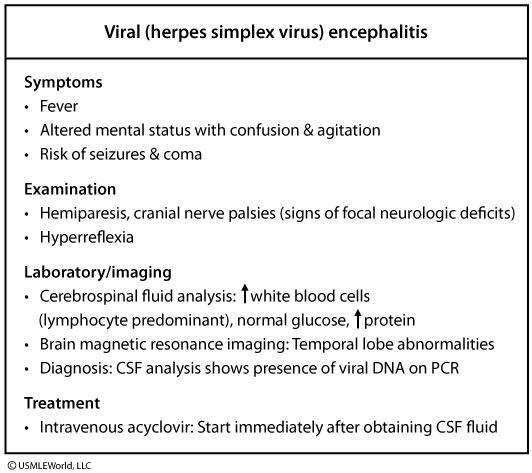HSV encephalitis

This patient's presentation is consistent with viral encephalitis. The majority of acute viral encephalitis cases are due to unknown causes. However, herpes viruses (eg, herpes simplex, varicella, Epstein-Barr) most commonly cause encephalitis in immunocompetent adults. Patients typically present with fever, altered mental status, agitation, headaches, and seizures that can rapidly progress to complete unresponsiveness or coma. Examination can show neurologic abnormalities, including hemiparesis, cranial nerve palsies, and exaggerated deep-tendon reflexes. Clinical signs of meningeal irritation (eg, photophobia, nuchal rigidity) are usually absent in patients with pure encephalitis.
Lumbar puncture usually shows cerebrospinal fluid (CSF) findings of elevated white blood cell count with lymphocytic predominance, normal glucose, and normal to slightly elevated protein concentration (generally 100 mg/dL). Most patients have an increased red blood cell count as well. Diagnosis is usually confirmed by detecting viral DNA by polymerase chain reaction (PCR) in the CSF. Empiric treatment with intravenous acyclovir should be started while awaiting PCR results as encephalitis is often associated with significant morbidity and mortality.
- Look for MRI findings of temporal lobe enhancement/infarct